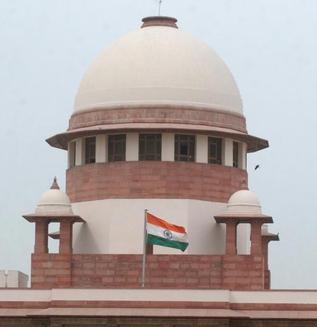Justice A.K. Ganguly retired on Thursday from the Supreme Court on attaining the age of superannuation. He was given a warm farewell by the members of the Bar and the Bench at a function organised by the Supreme Court Bar Association amid standing ovation from lawyers. Justice Ganguly was appointed Judge of the Supreme Court in December 2008. During his tenure spanning a little over three years, he rendered landmark judgments on various branches of law, in particular criminal jurisprudence, constitutional and human rights issues.
2G case
A bold and courageous judge, he was known for his frank and forthright views and comments, which became evident during the hearing of the 2G spectrum case since October 2010. He was part of the Bench with Justice G.S. Singhvi in the 2G case in which 122 licences were cancelled on Thursday.With a smiling face, he endeared himself to the members of the Bar and the Bench. He was the Chief Justice of Orissa and Madras High Courts, before being elevated as a Judge of the Supreme Court.Justice Ganguly was convinced enough to observe in a judgment that the Supreme Court had violated the fundamental rights of citizens during Emergency in 1975. And in an unprecedented move, he commuted to life imprisonment the death sentence, earlier upheld by it, of a man who murdered four members of a family.
Majority decision
A Bench of Justices Aftab Alam and Ganguly took the view that the majority decision of a five-member Constitution Bench upholding the suspension of fundamental rights during Emergency in the ADM Jabalpur vs Shivakant Shukla case (1976) was erroneous.Justice Ganguly, who wrote the judgment, said:
“There is no doubt that the majority judgment of this court in the ADM Jabalpur case violated the fundamental rights of a large number of people in this country. The instances of this court’s judgment violating the human rights of the citizens may be extremely rare, but it cannot be said that such a situation can never happen. We can remind ourselves of the majority decision of the Constitution Bench of this court in Additional District Magistrate Jabalpur.
“The majority opinion was that in view of the Presidential order dated June 27, 1975 under Article 359 (1) of the Constitution, no person has the locus standi to move any writ petition under Article 226 before a High Court for Habeas Corpus or any other writ to enforce any right to personal liberty of a person detained under the then law of preventive detention (MISA) on the ground that the order is illegal or malafide or not in compliance with the Act.”
Justice Ganguly, while quashing the allotment of land made to the former Indian cricket team captain, Sourav Ganguly, in Kolkata by the West Bengal government, said “We are sorry to hold that in making the impugned allotment in favour of the allottee, the State has failed to discharge its constitutional role. The said allotment was made by the government admittedly without verifying whether the allottee had surrendered the previous plot allotted to him. Such action of the government definitely smacks of arbitrariness and falls foul of Article 14.”
On Hindu law, he held that under the Hindu Marriage Act (HMA), illegitimate children would be entitled to all the rights in the property of their parents, both self-acquired and ancestral.Interpreting Section 16 (3) of the HMA, he said: “Such children are only entitled to the property of their parents and not of any other relation. The relationship between the parents may not be sanctioned by law but the birth of a child in such relationship has to be viewed independently of the relationship of the parents. A child born in such relationship is innocent and is entitled to all the rights which are given to other children born in valid marriage. This is the crux of Section 16 (3).”
Justice Ganguly made it clear that the President or the Governor exercising the power of pardon in granting remission of sentence to a convict could not encroach into the judicial domain and give a finding on the guilt of the convict. If such a power was exercised arbitrarily, mala fide or in absolute disregard of the finer canons of the constitutionalism, the by-product order could not get the approval of law and in such cases, the judicial hand must be stretched to it.
Taking a serious view of the former Maharashtra Chief Minister Vilasrao Deshmukh, at present Union Minister for Science and Technology, interfering in a criminal investigation against a family of a Congress MLA, he imposed an exemplary cost of Rs. 10 lakh on the State government.
Coming to the rescue of hawkers, he held that they had a fundamental right to carry on with their business. He asked the Delhi government to enact law to regulate their trade keeping in mind the right of commuters to move freely and use the roads without any impediment.
On personal liberty, he said that in preventive detention cases, the representations received from the detenus must be disposed of expeditiously and every day’s delay must be properly explained and accounted for. “The representations should be very expeditiously considered and disposed of with a sense of urgency and without any avoidable delay.”
Source: http://www.thehindu.com/news/national/article2854684.ece
Related articles
- Don’t sit on sanction for prosecution in corruption cases, says Supreme Court (indialawyers.wordpress.com)
- Prolonged preventive detention unconstitutional:SC (indialawyers.wordpress.com)
- Government has no right to alienate, transfer or distribute natural resources/national assets otherwise than by following a fair and transparent method consistent with the fundamentals of the equality clause enshrined in the Constitution (indialawyers.wordpress.com)
- Govt faces Supreme Court ire over pendency (indialawyers.wordpress.com)

